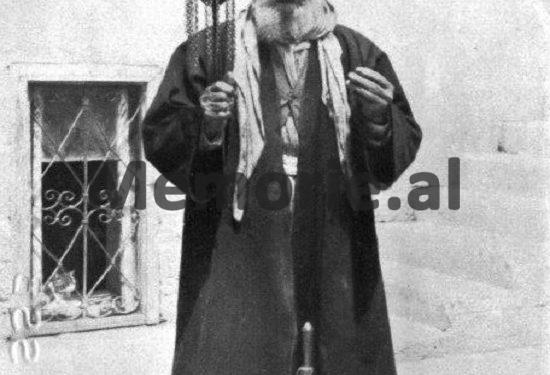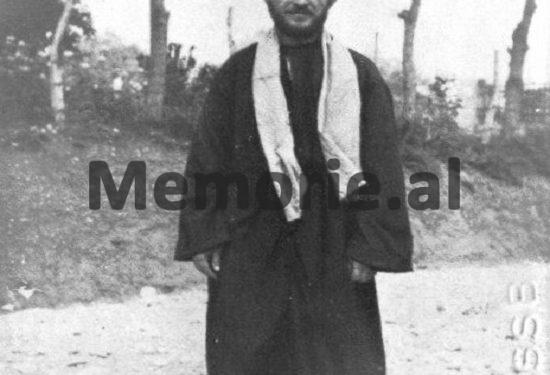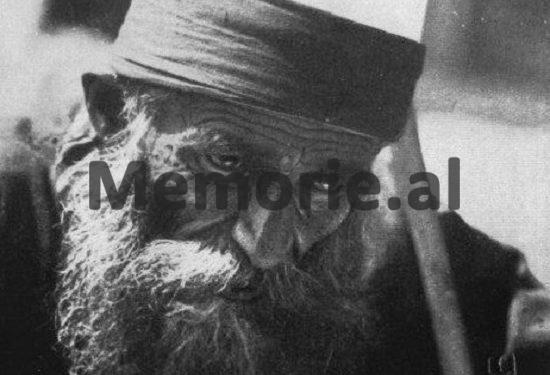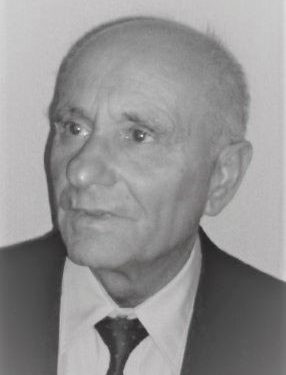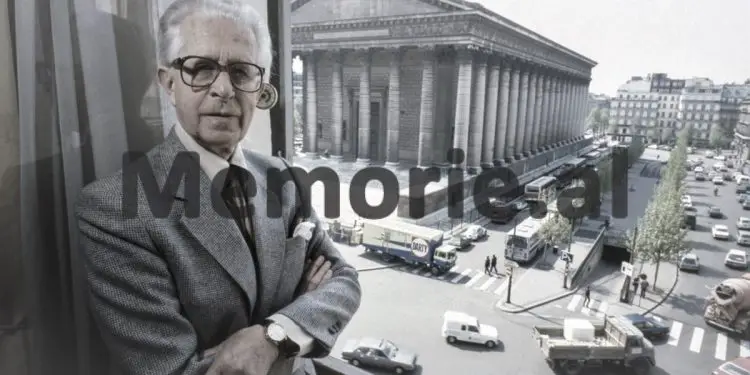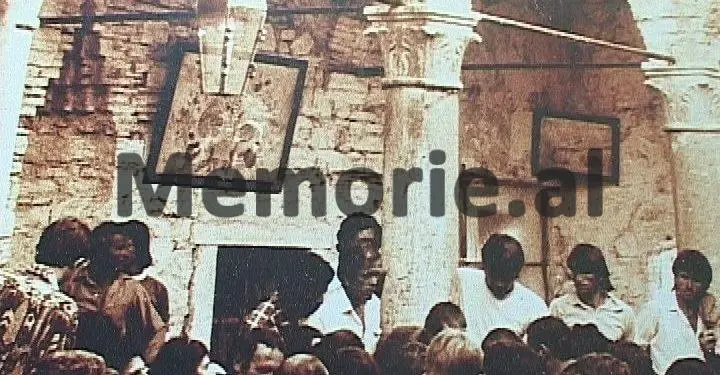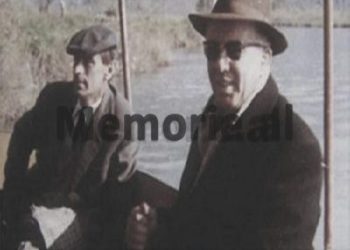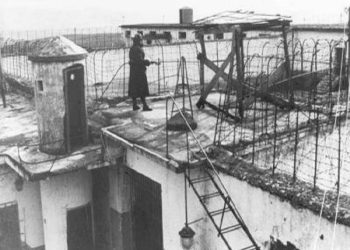By Sven Aurén
Translated by Adil N. Bicaku
Part thirteen
ORIENTI EUROPE
Land of Albania! Let me bend my eyes
On thee, thou rugged nurse of savage men.
Lord Byron.
In the book “Orient of Europe”, the author of the work is the Swede Sven Aurén. They are impressions of traveling from Albania from the ‘30s. His direct experiences without any retouching.
In a word, the translation of the book will bring to the Albanian reader, the original value of knowing that story that we have not known and we continue to know it, and now distorted by the interests of the moment.
Now a little about what these lines address to you: My name is Adil Bicaku. I have worked and lived for over 50 years in Sweden, without detaching for a moment, the thought and feeling from our Albania.
I am now retired and living with my wife and children, here in Stockholm. Having been for a long time, from the evolution of the Albanian language, which naturally happened during these decades, I am aware of the difficulties, not small, that I will face, to give the Albanian reader, the experiences of the original.
Therefore, I would be very grateful if we could find a practical way of cooperation together, to translate this book with multifaceted values.
Morally, I would feel very relieved, paying off part of the debt that all of us Albanians owe to our Albania, especially in these times that continue to be so turbulent.
With much respect
Adil Biçaku
Continued from the previous issue
Do you believe that there is a more tolerant state in terms of religion than Albania? Asked the young doctor Rama, a good lecturer, who speaks fluent German and a few years ago, had visited Stockholm, as the head of a group of Albanian students. We were sitting and talking in the canteen of “Continental”, which in the evening, turns into an Italian club form. At the tables around us, Italian officers are sitting. Listen to the news on Rome radio and express regret over this primitive situation in this capital, forgotten by God that cannot even create a promenade with beautiful girls, available. The hotel owner moves the radio button in one corner of the room. That young lieutenant at the table next to us writes a letter and does not notice anything at all from the noise and commotion around. Rama moves a little worried. He is not happy with the atmosphere here.
-I do not know if it can be thought, he continues, that a Swedish Jew, who belongs to the Parish of Moses in Stockholm, with religious prayers and zeal, attends Mass in a Protestant church? Maybe it is possible. But I believe, that this is unique, to find a Christian kneeling on a mosque floor and turning his head from Mecca or a Muhammadan bowing deeply in front of a photograph of the Virgin Mary. But these are not extraordinary, here in Albania. Religious relations are very strange.
We have three different religious groups: Muslim, Catholic and Orthodox. It is difficult to give a figure of the exact composition between the groups, but in round numbers you can say that the population of the country consists of 60 percent Muslim, 15 percent Catholic and 25 percent Orthodox. After four hundred years of Turkish rule, it is only natural that Islam should become the dominant religion. Catholics are located mainly in the northern part of the country, Orthodox in the south, where proximity to Greece has made the population particularly sensitive to this doctrine. Take a look at our history, you will find that over the century, there has been a fierce war, for our souls.
The Pope has made his own, their Greek popes their own, and not even the Muslim clergy in Constantinople, has remained on the passive side. Here, as in all other countries of the world, political views have gone hand in hand, with religious ones. But foreign interests, which according to the old principle of ‘divide amperes’, have found this, more appropriate to disrupt the harmony of religion as much as possible, have miscalculated. The relationship is in fact like this, that religion has never exercised any great influence on the Albanian. He is not religious in the ordinary sense of the word. Or rather, it has its own religion: those millennial traditions, which are born and developed, among the mountains where it resides. These traditions have formed a worldview, which is above confession, a past and old worldview, call it what you will, but an attitude completely on excellent tracks.
You talked to me a few days ago about the habit of blood feuds. I, fully agree that it is a disgusting habit and look forward to the day when this one will be finally eradicated. But to look at it in a broader perspective, blood feud is an expression of a sense of obligation, which is not entirely worthless. The image of the world that the isolated life has given to the Albanians is harsh and strict, this is a meaning of life, which is found in the character, but not in the people, who have avoided any kind of degeneration. Albania is an absolute population without degeneration. That sounds like a word of praise, but you will be forced to give me the right.
It is necessary to understand the importance of this Albanian purity; a moral doctrine is formed between the mountains, to understand the position of the denomination in the country. It plays a very small role whether you are a Christian or a Muslim. Those demands, that tradition presents, remained still the same. Of course, the common people, uneducated in some way, have been the object of easy elaboration, for the purpose of the missionaries of the religions. One feels respect for the outer garment of religions, it is known, including great, strong peoples, and consider being in tune, to be an official member in at least one of them. But this, this inner, very ancient moral doctrine, stands far above any kind of imported preaching, in a way has neutralized the efforts of the missionaries.
Some have converted to Islam, others to Christianity, but no one has been able to sow that hatred for other religions, which always play a major role in every battle of the religious mission. The Albanian Muslim does not consider the Albanian Catholic as an individual of the lowest and least valuable class. Greek Orthodox has the same respect for both. The fiery curses of religious preachers, over religions other than those they themselves represented, had no effect.
It is not at all negligent to emphasize that the heterogeneity of religion in Albania is a proof of a state, without spiritual units. But you can hardly find an example in the history of my country, where these different denominations have prevented the Albanians from uniting around patriotic goals in times of crisis and foreign attacks. Is not this a spiritual union of the same high value? I myself am a Muhammadan. But first of all I am Albanian and if the circumstances would force me to choose between obligations, towards the homeland and simply Muhammadan, I would not hesitate a minute in the election. Such are we all. As I already said: we are not a religious people. This, of course, may be a weakness, but in a state with three religions, it is certainly more beneficial than harmful.
Rama suddenly fell silent, as if afraid that he would not say more.
-Of course you should not think that we are a herd of savages, he adds carefully.
-Which of the three religions has the greatest perspective, over time? Muhamedanism of course?
-Undoubtedly, Catholicism. The Catholic clergy is far superior in the matter of education and intelligence than the Mohammedan and the Orthodox. The Catholic Church makes a clever propaganda and knows how to exploit the desire of the new generation for reforms and progress of various kinds. How to say Muhamedanism in itself is not a progressive religion, think of our imams and imams, completely incomprehensible to the demands of the new age. They are lazy and ignorant. It is no coincidence that a more flexible sect for flexibility, within Albanian Muhamedanism, the Bektashi listeners, have become so numerous members that we can almost speak of a fourth religion. Bektashi, is a very ancient order of dervishes, which in his time, in Turkey alone numbered over 7 million followers, but has now been banned by Mustafa Qemali.
In Albania the authorities did not have any reason to restrict the order in question, on the contrary, the dervishes found all the help they wanted. The leader of the Albanian Bektashis is the former chief of the Turkish dervishes, who lives in his monastery, here outside Tirana. The order is organized in fact, into active and passive member. The active are the dervishes, who are scattered in numerous tekkes, all over the country, and during their studies and meditations, they try to acquire that wisdom, which we ordinary mortals never have the peace to devote to. Those passives have promised to abide by the rules of order and to preserve the “great secret of Bektashism.” It is difficult to give their real number, but it certainly consists of many hundreds of thousands. The doctrine preached by the Bektashis is a wise, liberal and progressive philosophy, which at the same time, through wise practical planning, has shown to be a great attractive force of the qualified stratum of the people of the country.
-And the “great secret of Bektashism”?
Rama laughs.
-I was just waiting for this question. I have heard this many times. To enter the sect, you must therefore prove that you are indeed a respected Muhammadan believer and submit to it for some initial time. After that a big acceptance ceremony is organized and the culmination of the ceremony is the announcement of the “big secret” that the new member must swear and not betray. But now comes the surprise. The order includes, as I mentioned, hundreds of thousands of Albanians. People are no more than people and so, it is thought that in such a mass of people, there must be enough, that they cannot keep their mouths shut. It is completely impossible for foreigners to discover the “secret”. I myself am not a Bektashi, but I have relatives and many friends who are Bektashi.
I am trying by all means, to penetrate the mysticism, but impossible. As a modern European, I did not want to join the Bektashi sect, because the work of the sect is contrary to my principles. I ask myself the question: what can be thought of as a “secret”, which even the most talkative person has so easily, I kept it sacred and gradually, I formed my theory, which seems to me very reasonable. But this already of course, you have found?
-But mysticism seems to me rather quite impenetrable.
-You know what I think: there is no secret. When the father, that is, the Head of the Sect, will give to the beginner, that last penetration into mysticism, which makes him a Bektashi, he says to him: “My son, now you are a Bektashi and for one, “There is no secret.” So, the secret of secrets is this, that there are no secrets. We are the only Bektashis who know this. Less wise than we are, they believe that the world is full of secrets. We know best, but do not let fools, keep their faith.
I look at Rama, but he does not even laugh at all. He seems convinced.
-Think then, you will understand that genius in this activity. When there is no secret, then the member has nothing to betray. He goes there and looks from the look as important, but there is no need to be afraid, lest his mouth escape. To clarify the real situation would be almost a disgrace, or at least greatly diminish his prestige. I am probably one of the few outsiders who have dictated the mysticism of the Bektashi sect.
-You talk about dervishes, I tell him. There are many kinds of dervishes. There are dervishes who dance and those who shout. Are these groups also reborn within the religious life of your state?
Rama does not seem satisfied with my question.
-Yes, they are found, he answers briefly, but you should know, that there are dervishes and dervishes. The dervishes of the Bektashi sect, for example, are men of high culture, who, through their tolerant attitude to the problem of the time, constitute an asset for our country. Take and compare with the members of the Rufai sect, who unfortunately are quite represented, they are personalities with excellent culture. The Rufai dervishes are lower-class people who, through a purely pathological religious practice – exalting dances, fakir art, etc. – cause a direct harmful influence and contribute to keeping the wider population at a level of low from a cultural point of view. We young and educated Albanians would like nothing more than to ban these dervishes. At that point, Mustafa Qemali has our hotest sympathies. And confirm my words: soon the ban will come and here!
-But all the time, do you see these dervishes? Maybe even here in Tirana?
He laughs. But it is an ironic laugh.
-You foreigners are always the same. There are many interesting and beautiful things to see here, but anyway any foreigner who comes here, necessarily seeks the Rufai Dervish Tekke. So go and see the misery! But remember, that it is not something typical for Albania and I did not recommend you to go there. And maybe you need to find some other guide. If it is found out that I have been and greeted Rufai, then I risk becoming the object of ridicule, undesirable among my colleagues…!
-Signor, calls the Italian owner, who has come to our table, where he performs a series of flattering bends. Unfortunately, I want to beg the gentlemen to come out now. We will close it…!
It was not so difficult to find a narrative road and one evening I head together with a young Albanian sketcher, to the House of Rufai Dervishes, a simple two-story building and quite ruined, with a tekke character, i.e., a monastery, it seems side of the sheikh’s turban sculpture above the gate. Two dirty oil-stone lamps shine in the windows, but when we go down the dilapidated stairs to the room where the hearing will take place, it is so difficult that we almost have to walk blindly up there. The collection room is small and cramped. Along the beautifully colored walls, proverbs hang from the Qur’an, inside a display case with a glass door; the turbans of the dead shahls appear, in front of the present one.
One corner of the room is separated by a plank fence and behind the fence sits the sheikh in the sacred cage. In front of the fence are several mats, where dozens of men in national dress and barefoot, are sitting on their knees in half arches. I have seen some of them. I meet that weak young boy, in some cases on the street and that bearded figure in the right corner, he finds me half asleep in the morning, behind the fruit shop with a mountain of oranges. But as a member of Rufaia, it is something far more distant than an ordinary fruit seller and treated with much respect, by other street traders. In addition, dervishes do not live together, but perform various civil crafts and at dinner, gather in their tekkes and under the guidance of the Sheikh pray to Muhammad. Nothing is kept secret from these religious prayer services. On the contrary, they eagerly want spectators to be able to recruit new students in this way.
The sheikh is an excellent guy. Sitting cross-legged and with a completely straight body, it gives an impressive impression. The green and black turban, gives an excellent frame to his visible profile, like an eagle. That long, white beard falls very low over his black cloak. It seems to you to have come straight from, ‘A Thousand and One Nights’, and if I had not had the misfortune, to see it even in the morning sunlight and in other circumstances, then the illusion would have been total. But a few days ago, I made a visit to the apartment of His Grace, with a humble prayer, that I might take his picture. His grace greeted me lying down, on an old English iron bed, where the bed covers had not been washed since the turn of the century. Nor does His Grace itself seem to have been washed away, since the turn of the century. This was an indecent confrontation.
But now at dinner, in this charity light, which hides stains and dirt, it looks simply brilliant. He is a powerful King among modest subjects and with a stern look, he looks at those magical instruments, which for this evening, have been taken from his private room, where they usually hang on the wall. They are partly a meter long, triangular, thick knives stand out, inserted into the brown mesh case, a part of needles, half a meter long with large heads, like cannonballs. This pile of macabre instruments also included a small and suspicious piece of rusty needles as well as two pieces of thick wooden feathers. But the tambourines have not come out and any devil dance, so I do not have to see. Due to the death of the Queen Mother, this point has been removed from the program. This is the contribution of the sheller’s, to the mourning of the country.
So finally everything is fine. We spectators are grouped at the foot of the walls. At the top of the stairs are some soldiers with the big “Z” of King Zog, in hats. The ten dervishes are sitting cross-legged across the mats, waiting for the sheikh’s beautiful turban to bow as a sign for prayer to begin. The soldiers stare with their mouths open and this young Albanian boy, who accompanies me, quickly makes a sketch of Shehu and his students. The old man in his cage, looks with frozen eyes forward. And suddenly the white beard shakes and the ten of them take an Arabic song. This is a strange, oriental song, in which you cannot distinguish any melody, but to enchant, through extraordinary sounds…! /Memorie.al
The next issue follows




